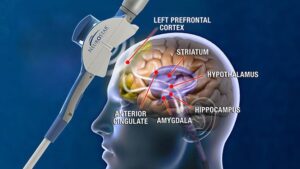Peptides, short chains of amino acids, are more than just building blocks of proteins. They play critical roles in numerous physiological processes, including pain modulation and aging. This article delves into the dual functionality of peptides – their emerging role in managing pain and their potential in enhancing longevity.
Peptides in Pain Management
The use of peptides in pain management represents a significant advancement in medical science. Unlike traditional painkillers that often come with side effects and risks of addiction, peptides offer a safer alternative. They work by mimicking natural pain-relief mechanisms in the body. For instance, opioid peptides bind to the same receptors as conventional opioids but with a reduced risk of dependency and fewer side effects.
One of the most promising peptides in pain management is CGRP (Calcitonin Gene-Related Peptide). CGRP plays a pivotal role in the transmission of pain and has been the target for new migraine treatments. These therapies have shown effectiveness in reducing the frequency and severity of migraines, offering relief to those for whom traditional treatments were ineffective or unsuitable.
Peptides and Longevity
Peptides also hold the key to unlocking secrets of aging. Certain peptides are known to influence the aging process, offering potential in extending human lifespan and improving healthspan. For example, the humanin peptide has been shown to have protective effects against age-related diseases like Alzheimer’s and cardiovascular disease.
Research in this area is exploring how peptides can modulate cellular pathways associated with aging, such as telomere length, oxidative stress, and inflammation. By influencing these pathways, peptides could potentially slow down the aging process and reduce the incidence of age-related diseases.
Balancing Efficacy and Safety
While the therapeutic potential of peptides is immense, their safety and efficacy must be carefully balanced. As with any medical treatment, the long-term effects of peptide therapies need thorough investigation. Researchers are also working on optimizing the delivery methods for peptides to enhance their stability and bioavailability.
Conclusion
Peptides represent a frontier in medical science, offering promising avenues in pain management and the pursuit of longevity. Their dual role underscores a broader shift towards targeted, biomimetic therapies in medicine. As research progresses, peptides may well become central to personalized medical treatments, addressing pain and aging at their molecular roots.








